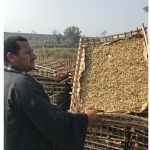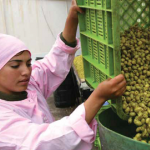Yumna Kassim, Mai Mahmoud, Sikandra Kurdi, Clemens Breisinger
This paper reviews agricultural and other related policies and their impact on the overall economic performance of the agricultural sector in Egypt. This stocktaking of policies is to serve as the basis for developing a more comprehensive agricultural strategy and policy framework that aligns sectoral policy objectives with policy measures in an effective and consistent manner.





